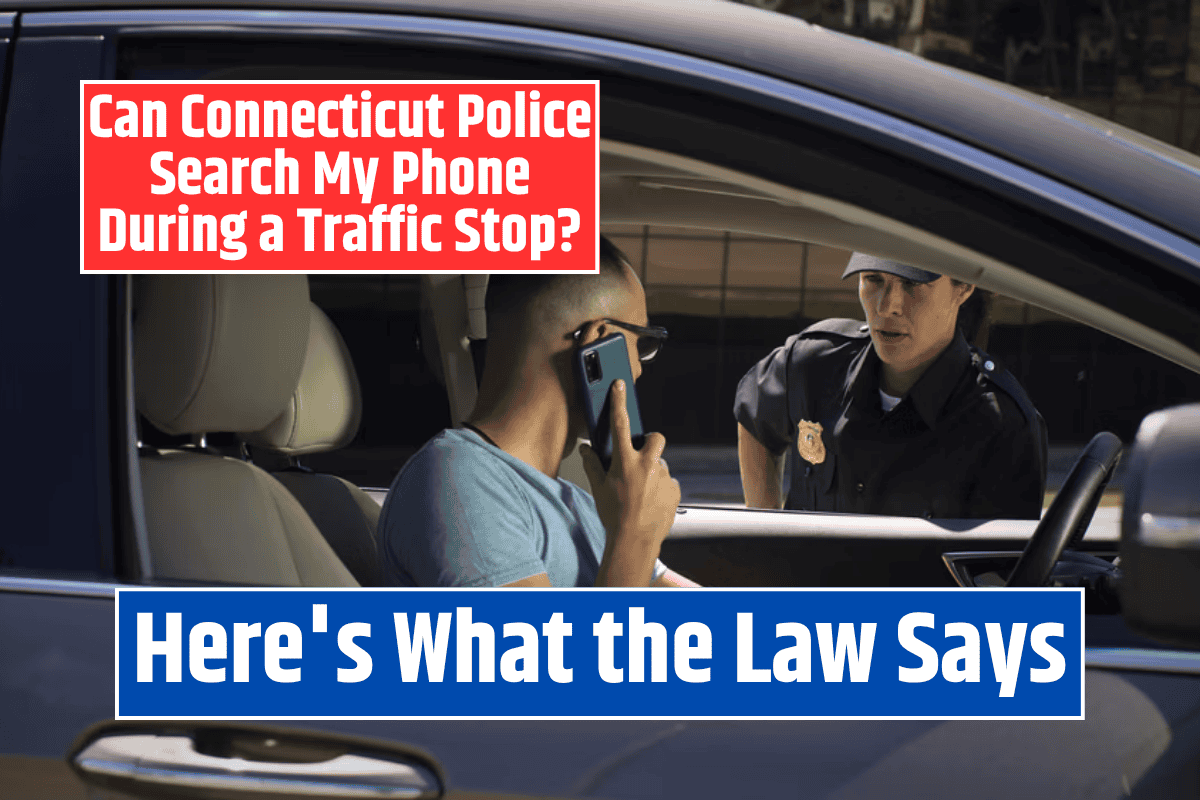In today’s world, our phones hold almost everything about us — messages, photos, emails, banking info, social media, and more. With such personal details packed into one device, it’s natural to worry about privacy, especially when dealing with the police.
So, what happens if you get pulled over in Connecticut and the police ask to see your phone? Can they legally search it without a warrant or your permission? This article breaks it all down in simple language.
What Does the Law Say About Phone Searches?
Under the Fourth Amendment to the U.S. Constitution, everyone is protected from unreasonable searches and seizures. This means the police generally cannot search your phone without a valid warrant or your consent.
This rule was strongly supported in the 2014 U.S. Supreme Court case, Riley v. California. In this decision, the court made it clear: police must have a warrant to search the contents of a cellphone, even after an arrest. Your phone is treated like your home when it comes to privacy — it’s that personal.
Can Police Search Your Phone During a Traffic Stop?
If you’re pulled over in Connecticut — whether for speeding, a broken tail light, or any other reason — the officer cannot legally search your phone without your permission or a warrant. Even if the officer is suspicious of something, they don’t have the automatic right to look at your device.
However, if you voluntarily give permission, then the officer doesn’t need a warrant. But here’s the important part — you are not required to give permission. You can say “No, I do not consent to a search.” That’s your legal right.
What If You’re Arrested?
Even if you’re arrested during a traffic stop, that doesn’t give police the right to go through your phone. According to the law, a separate warrant is still needed to access the data on your phone, even if it was taken as part of the arrest process.
What About Biometric Unlocking?
Today, many people use their fingerprint or face to unlock their phones. So, can the police force you to unlock it using your finger or face?
The answer is mostly no — unless they already have a court order (warrant) that specifically states they are allowed to make you unlock it that way. Without that warrant, they cannot force you to unlock your phone using fingerprint or facial recognition.
In short, the police can’t just grab your phone and force it open with your fingerprint or face. That would likely go against your privacy rights unless a judge gave them specific permission.
When Can Police Legally Search Your Phone?
There are only a few exceptions to the warrant rule:
1. You give permission (consent) – If you say yes, police don’t need a warrant.
2. Exigent circumstances – This means if the police believe there is an emergency situation where someone’s life is in danger, or important evidence might be destroyed, they may search without a warrant. However, this is rare and must be clearly justified.
3. They get a warrant – This is the usual legal method for police to search phones. A judge must approve it based on probable cause.
What Should You Do If Asked to Hand Over Your Phone?
If you’re ever in this situation, stay calm and respectful. You have the right to say no. You can politely respond with something like:
“I do not consent to a search of my phone.”
Also, you have the right to remain silent. You don’t have to answer any questions about what’s on your phone or who you’ve talked to.
If you feel pressured, you can also ask if you are free to leave or if you’re being detained or arrested.
Can Refusing to Give Consent Make You Look Guilty?
Some people worry that refusing a search makes them look guilty. But legally, refusing consent is not a crime. In fact, it’s a right that’s protected under the Constitution. Police officers are trained to handle these situations, and refusing permission should not be held against you.
In Connecticut, just like in the rest of the U.S., your phone is protected under the law. Police cannot search your phone during a traffic stop without your permission or a warrant. You also have the right to say no and stay silent.
They can’t force you to unlock your phone using your fingerprint or face unless they have special permission from a judge.
Understanding your rights is the best way to protect your privacy. Always stay respectful, calm, and aware — and remember, just because someone asks doesn’t mean you have to say yes.












